The Plucky Squire - Switch Review
"Fun and beautiful, but it feels a little safe."
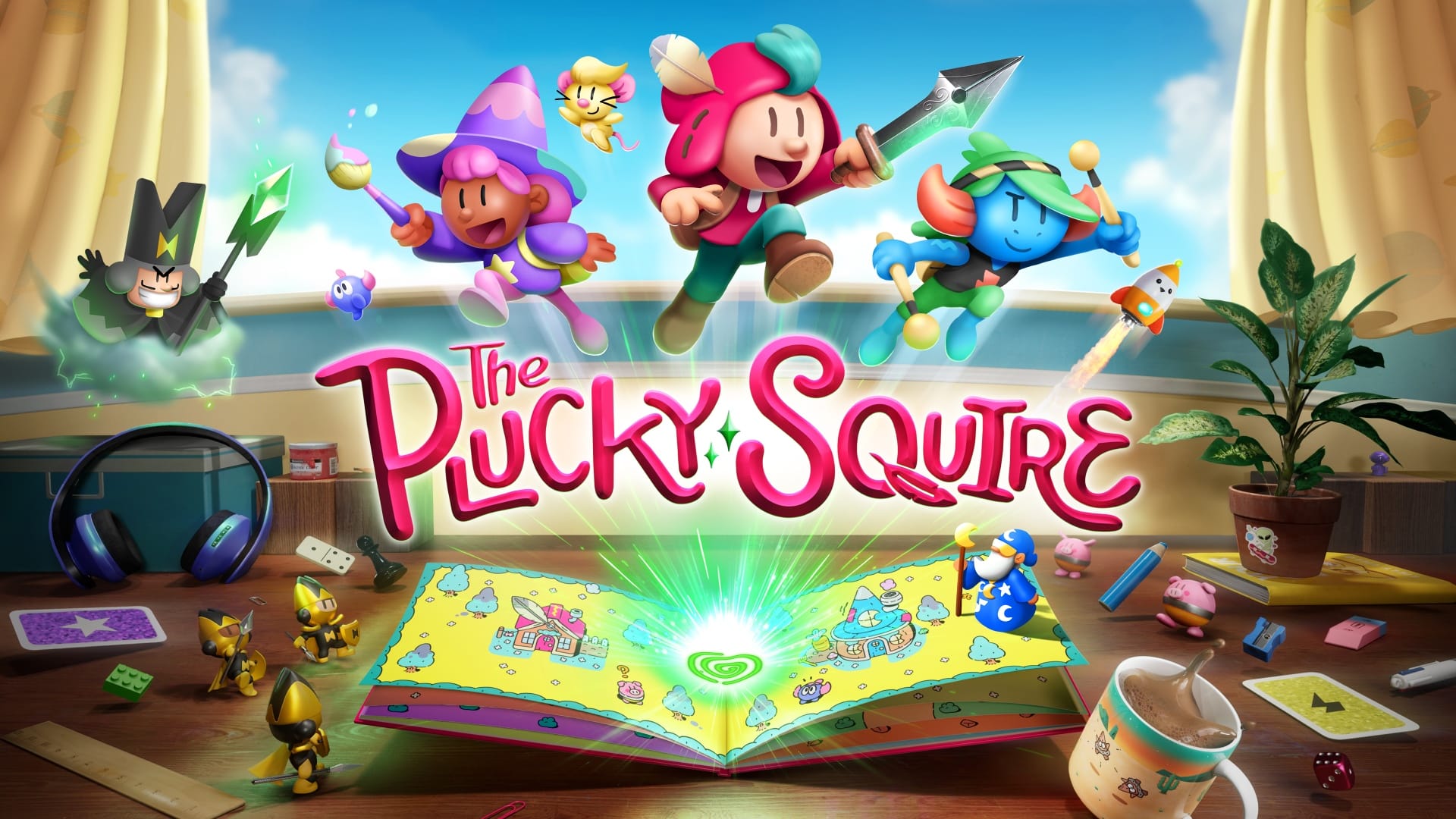
The Plucky Squire is the latest of the games published by Devolver Digital. I’m going to be honest and say they are one of my favourite publishers. Their support of independent developers has brought us many games we might otherwise not have seen, and boy do they know how to pick them. Hotline Miami, OlliOlli, Enter the Gungeon, Absolver, The Messenger, Gris, Katana Zero, Inscryption, Cult of the Lamb, and The Talos Principle are but a few games that come to mind in no particular order. Every time I see their name pop up on a credit card, I get excited, and The Plucky Squire, the debut game from developers All Possible Futures, seemed to be another in a line of greats that Devolver Digital helped to bring forth. It is a Zelda-like adventure that follows storybook hero Jot and his friends through an adventure that transcends the bounds of his picture book world.
The Good
First and foremost, I should mention that the artwork is very good. It is unique, yet fitting to the storybook setting. Characters are charming, enemies feel energetic, and the colours are bright and vibrant. It is a lovely game to look at during the storybook sections. While in the 3D sections, where Jot exits his storybook into the real-world, the charming storybook art style is traded in for a dose of realism, yet somehow they found a way to make a child’s desk in his bedroom feel like a large obstacle course complete with deadly beetles (Sam needs to clean his room).
Another thing I need to give this game praise for is its story. The villain of the book finds a way to eject Jot from the story so that he can go about his plans unimpeded, but Jot not only finds a way back in, but uses a device to turn the pages of his story to retread previous areas without having to slog through every area the player had been previously. Not only is this a great way to circumvent tedious backtracking, but it's also a creative way to incorporate the premise into gameplay. I also need to praise the stakes of the conflict. I won’t spoil it, but your motivation to succeed is small yet important. There is no grand, world-saving plot that I personally feel has been done to death in almost all modern media nowadays. A child’s inspiration is on the line, and it motivated me to continue on the adventure much more than the end of the world ever could.
TL;DR
- Beautiful artwork
- Creative use of game premise in level design
- Small yet important stakes for plot
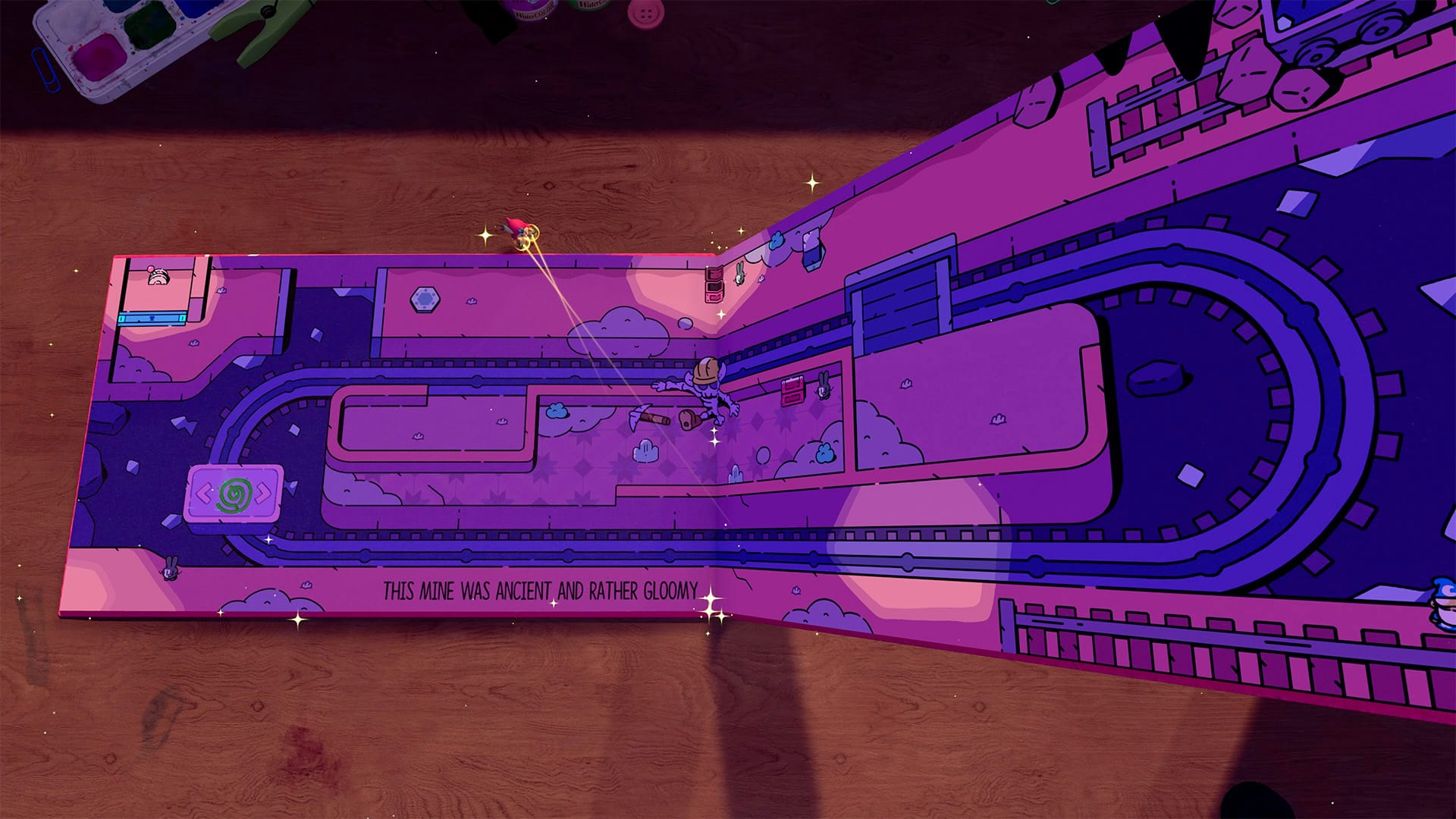
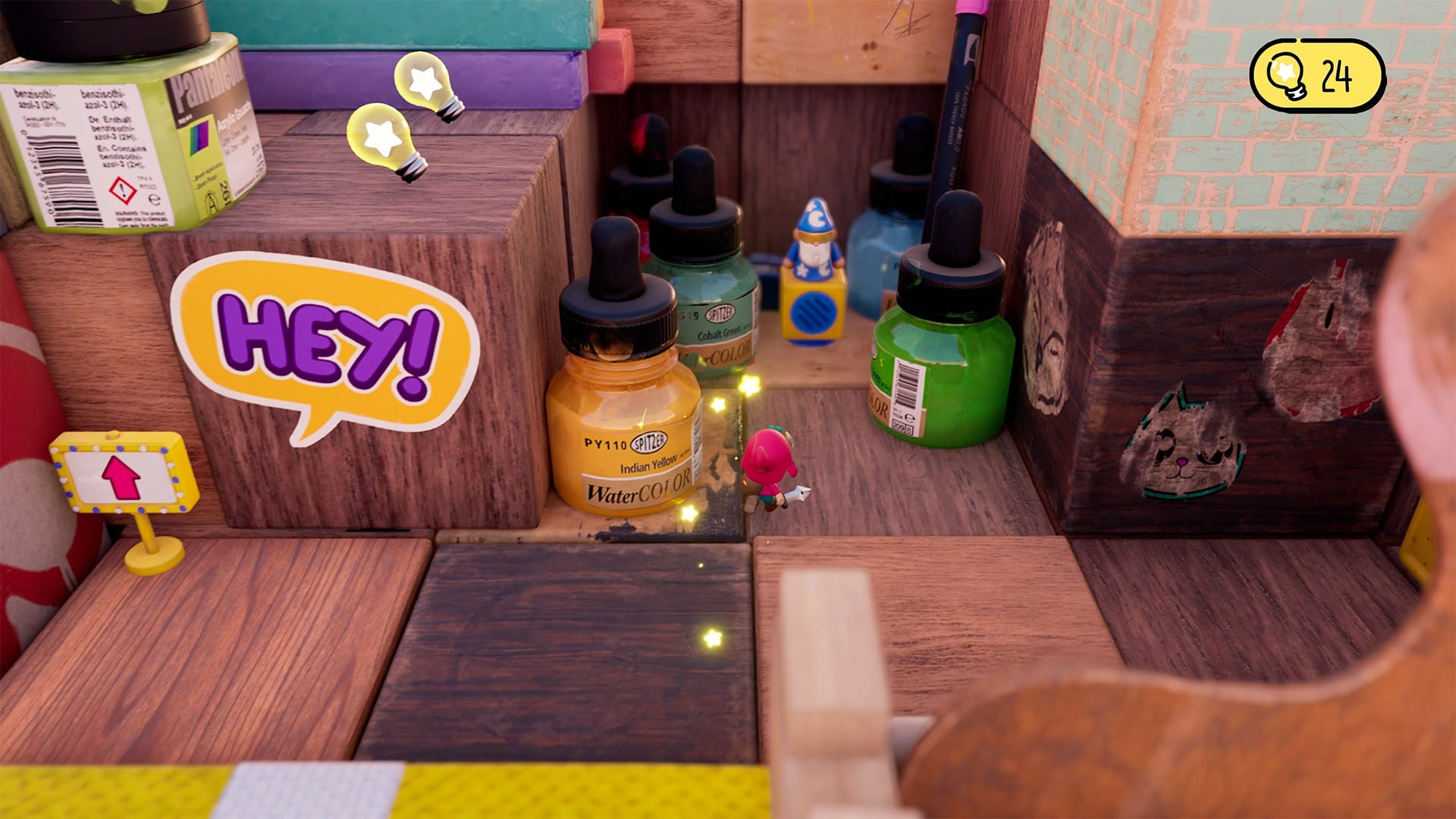
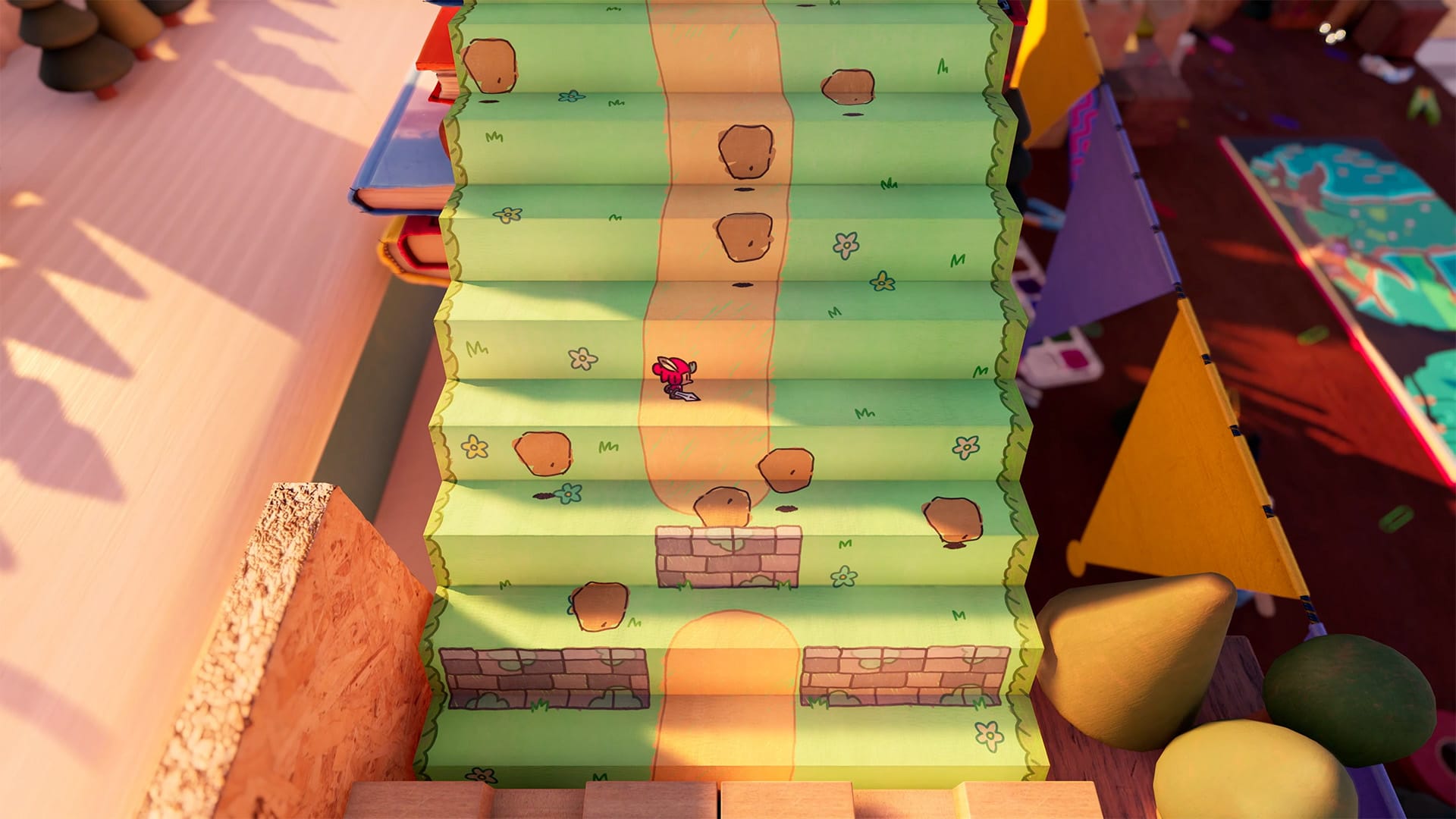
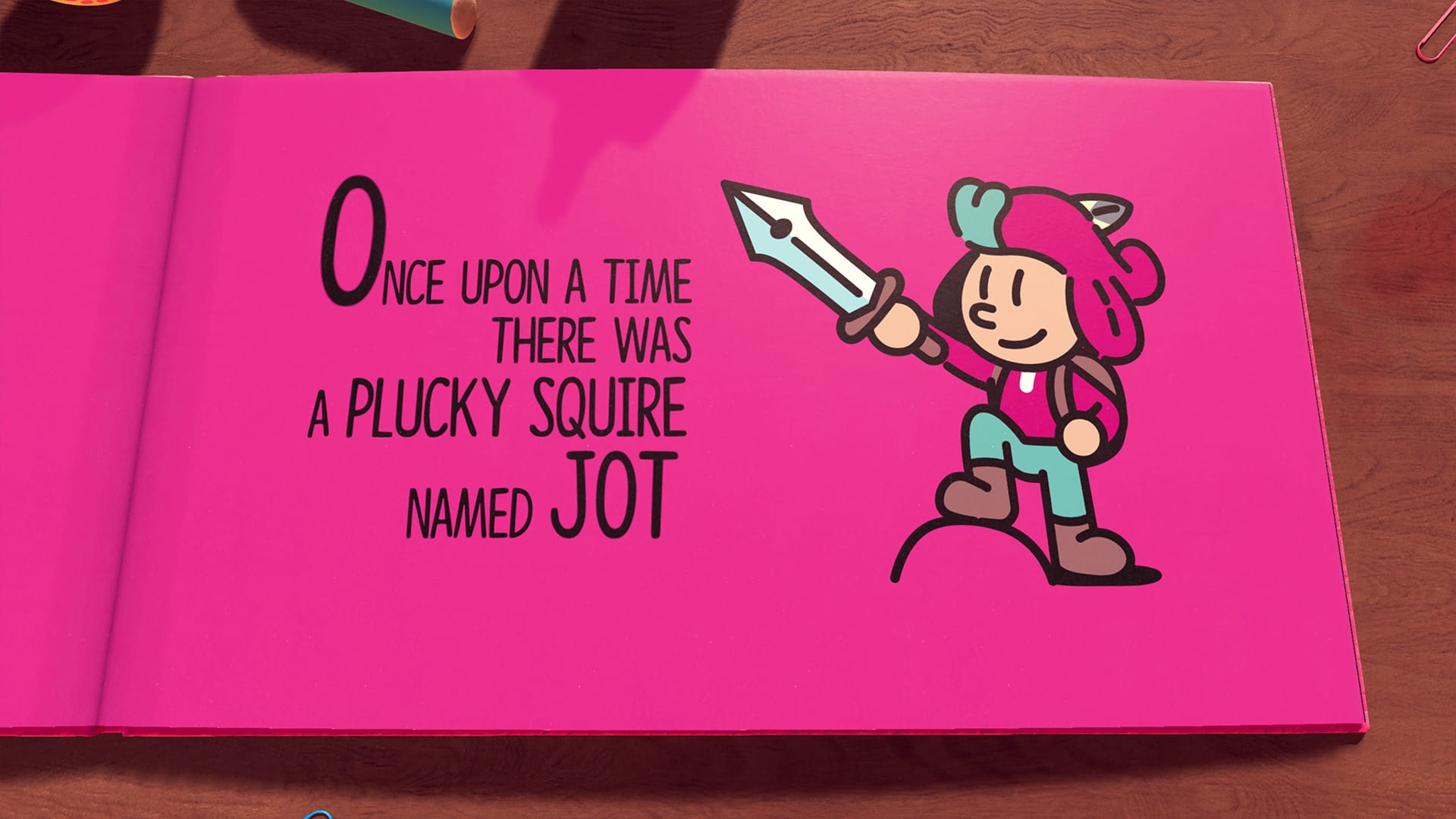
The Bad
My biggest complaint has to do with the game’s premise as well. The game is very linear when considering the fact that Jot has the power to leave the book and turn its pages. You can only ever go backwards when turning the pages, which effectively stops spoilers and sequence-breaking, of course, but the power convinces you that you can tackle the game’s challenges nonlinearly and then says you’re not allowed. You also cannot leave the book whenever you want, only through carefully placed portals throughout the game. The only reason you would leave the book is to solve a puzzle or chase the plot as well. It feels like a more restrictive version of the gimmick found in The Legend of Zelda: A Link Between Worlds. It’s a shame, because I think the premise has a lot of potential.
Something that I personally don’t think is a terrible negative but I know many people would disagree with me, is that the game holds your hand very hard. Being in a storybook, the game has narration, either voiced or as text on the ‘page.’ This leads to restricting the amount of space the game gives you to figure out its otherwise creative puzzles. I felt as though the developers were guiding me through their experience, both in this point and my previous one. Not everyone will view this as a negative, so keep this in mind when deciding to spend your money on this game.
My final complaint is, unfortunately, that this game was released on the Switch. It’s not very well optimised for the console. While in the storybook, the game runs great, if not at a less than perfect frame rate. However, outside of the book, the game struggles a bit. I’ve never had the game slow down to a slideshow, but you can tell the system struggles to keep up when you’re exploring 3D spaces. I will also mention that I ran into one soft-locking glitch that forced me to lose about three minutes of gameplay, which was a tad disappointing. One might think the game doesn’t look terribly demanding, so I think this game is a victim of the Switch just being an old system. Perhaps it will run better on the Switch 2? I’ll put in a small aside here and mention that it was also released on everything else.
TL;DR
- Very linear gameplay
- Holds your hand a little too much
- Doesn’t run well on Switch

Final Score: 7/10
If you’ve been itching for a more traditional Zelda adventure instead of Echoes of Wisdom, I don’t think you’ll be disappointed by The Plucky Squire. The game is fun and beautiful, but it feels a little safe. Like All Possible Futures didn’t really trust its players to be able to figure out its puzzles. Still, I think it’s worth the cost of admission. There are some lessons to be learned here for the developers, though, and I hope they take those into consideration when making their next title. This game is ambitious, but it is held back by that same ambition. If the game’s structure could be made less linear and I held my hand a little less, I might have given this another point or two.
Thank you for checking out our The Plucky Squire Switch review, thank you to Devolver Digital (via Power Up PR) for providing the review code and thank you to our Patreon Backers for their ongoing support:
- Andrew Caluzzi (Inca Studios / Camped Out)
- Bel Cubitt
- Bobby Jack
- Jack Caven
- NintenVania Podcast
- RedHero
